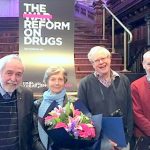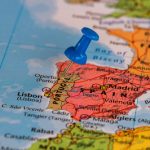Upholding the Rights of People Who Use Drugs Post-COVID

The onset of COVID-19 has drawn attention to many of the inequities that our social systems operate under. And the authoritarian response of governments to the pandemic has further highlighted some of the flawed assumptions that underpin the war on drugs.
A recently released paper outlines that while the health crisis is certainly exacerbating the criminalisation and stigma experienced by people who use drugs, the virus outbreak also provides an opportunity to reimagine the global approach to the use of substances that are currently prohibited.
A safe supply
COVID-19 – Enacting a “New Normal” for People Who Use Drugs was written by International Network of People Who Use Drugs (INPUD) secretariat staff: executive director Judy Chang, communications officer Jake Agliata and RCF Consortium Coordinator Mauro Guarinieri.
The authors point out that there’s an estimated 35 million people who use drugs globally. And for many, their vulnerabilities have been exacerbated during COVID, as access to harm reduction services has declined, and available drug supplies have increased in toxicity.
A local example of how one these issues has been resolved in part, has entailed the NSW Users and AIDS Association (NUAA) not only continuing to run its needle and syringe program at its Surry Hills site, but the organisation has extended this to a statewide mail order service.
While in the Canadian province of British Columbia, health authorities launched a safe supply policy in March aimed at combating an ongoing overdose crisis. This involves certain people who use drugs now being able to have doctors prescribed them pharmaceutical alternatives to street drugs.
Mass incarceration
Early on in the pandemic, there were calls across the globe for the release of inmates, with the understanding that a disease like COVID-19 would cause havoc within closed environments, like prisons.
Indeed, in NSW, the government passed early release laws, which it never utilised.
This is an issue of particular concern for people who use drugs, as there’s an estimated 470,000 individuals currently incarcerated worldwide simply for drug use or personal possession, while there’s 1.7 million inside for other drug-related offences.
And then there are an additional 600,000 people forcibly detained in drug treatment facilities throughout Asia and Latin America.
One only has to look at the example of Portugal for an alternative to mass incarceration, as in that country, the personal possession and use of all illicit substances have been decriminalised since 2001.
This means a person can be detained in a COVID hothouse prison for cocaine possession in Brisbane, while in Lisbon, they’d be guided to treatment, and that’s only if a dissuasion panel deemed that as necessary.
Drug war peace
The report authors suggest that while the COVID-19 crisis has drawn usually fringe concepts – such as a universal basic income and universal healthcare – into mainstream consideration, it could also be a time to seriously discuss the benefits that an end to the war on drugs would bring.
And they provide a list of recommendations that INPUD is calling for. These include decriminalising the personal possession and use of illicit substances, access to harm reduction for all, ensuring a safe supply with a view to moving towards a regulated market, and the upholding of civil liberties.
“The language of ‘war’ has been weaponised against people who use drugs for far too long,” the INPUD researchers conclude. “We need… to enact a new reality based on solidarity and cooperation, protection of the health and restoration of the rights and dignity of people who use drugs”.







